Annual Review's Rehearsal in Antwerp, September 11-12, 2019
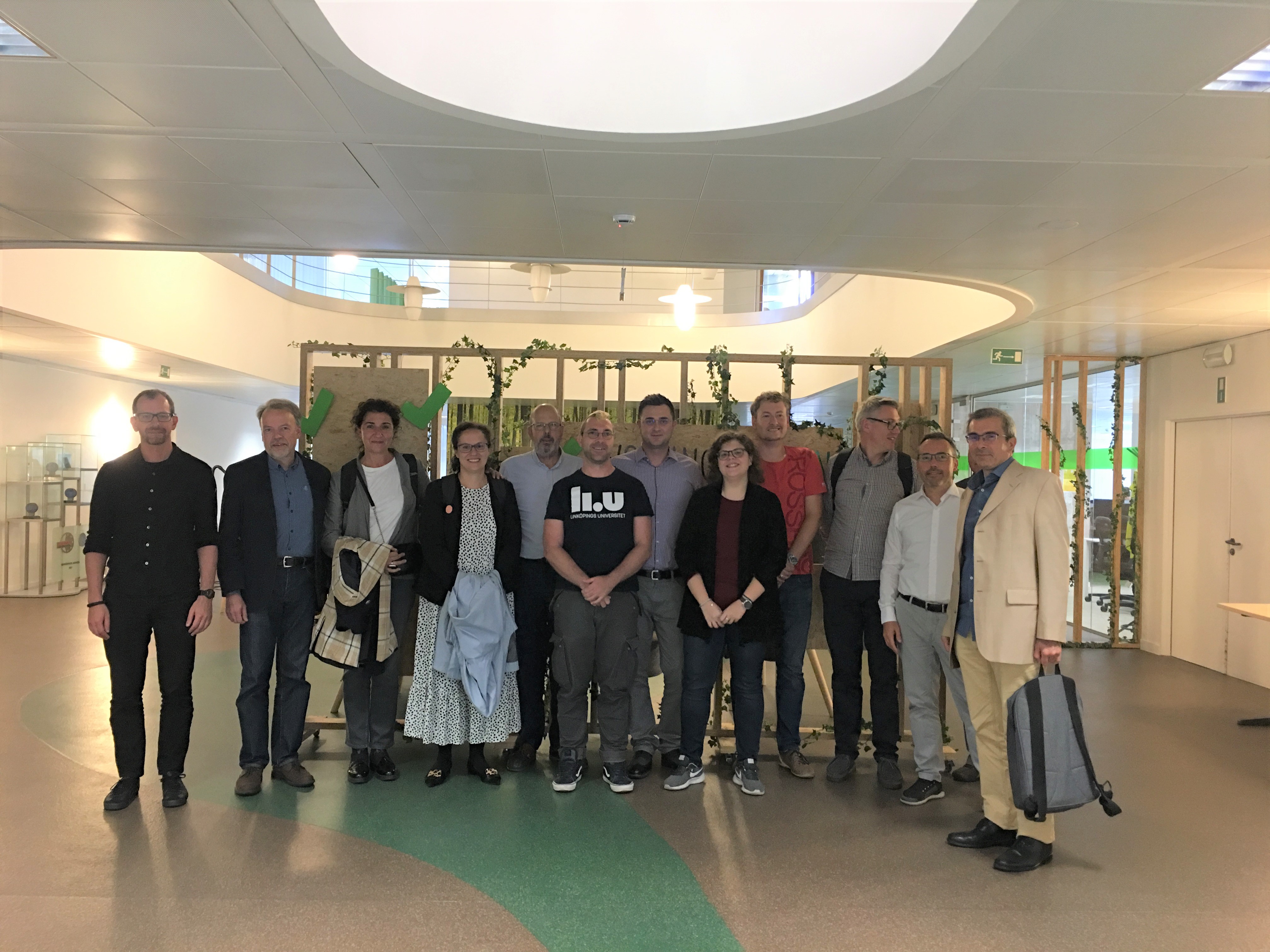
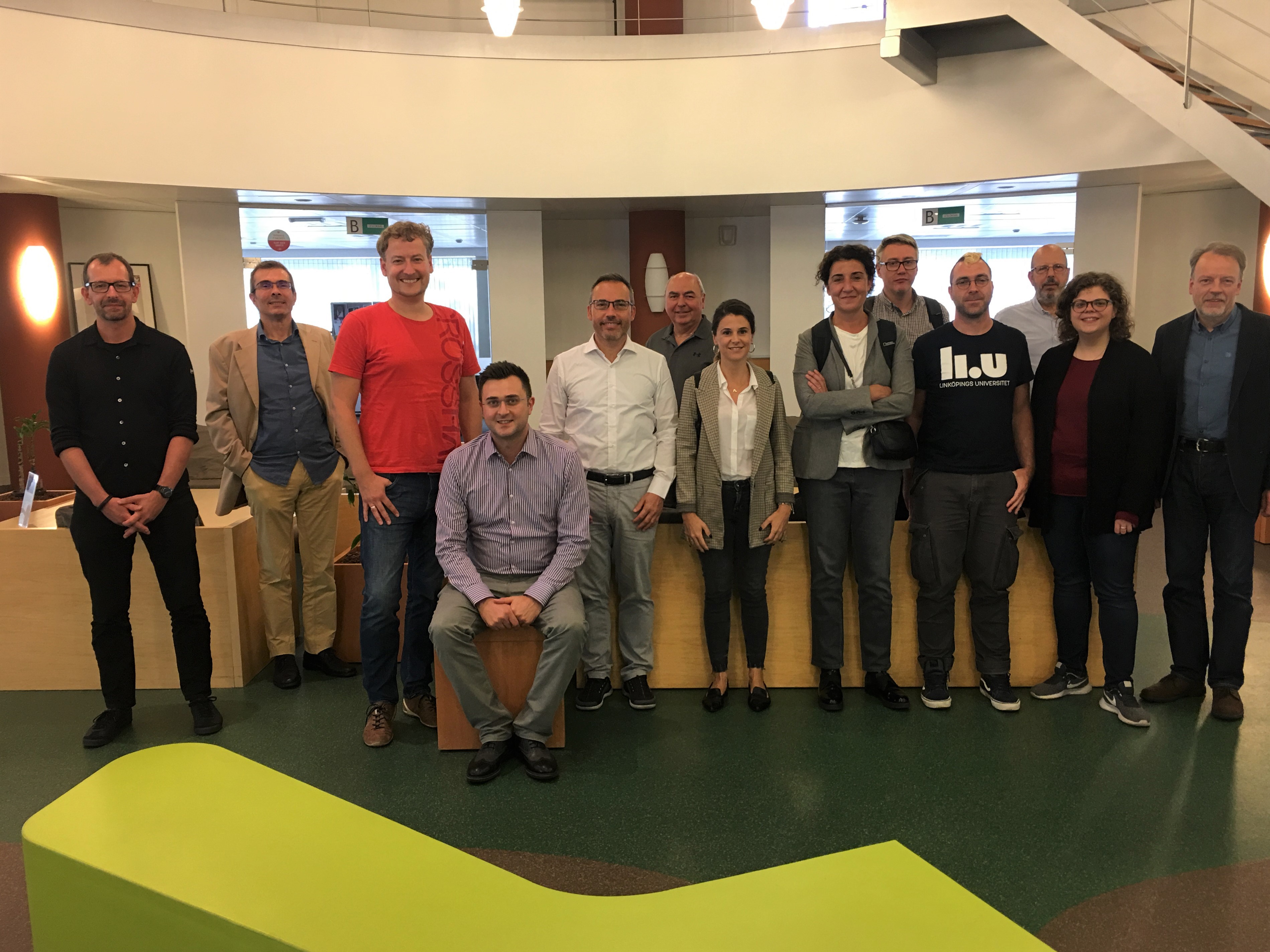
The first annual review rehearsal, took place in Antwerp, on September 11th -12th, 2019, hosted by partner STAD Antwerp. Thanks to all partners for their contributions!!!


The first annual review rehearsal, took place in Antwerp, on September 11th -12th, 2019, hosted by partner STAD Antwerp. Thanks to all partners for their contributions!!!
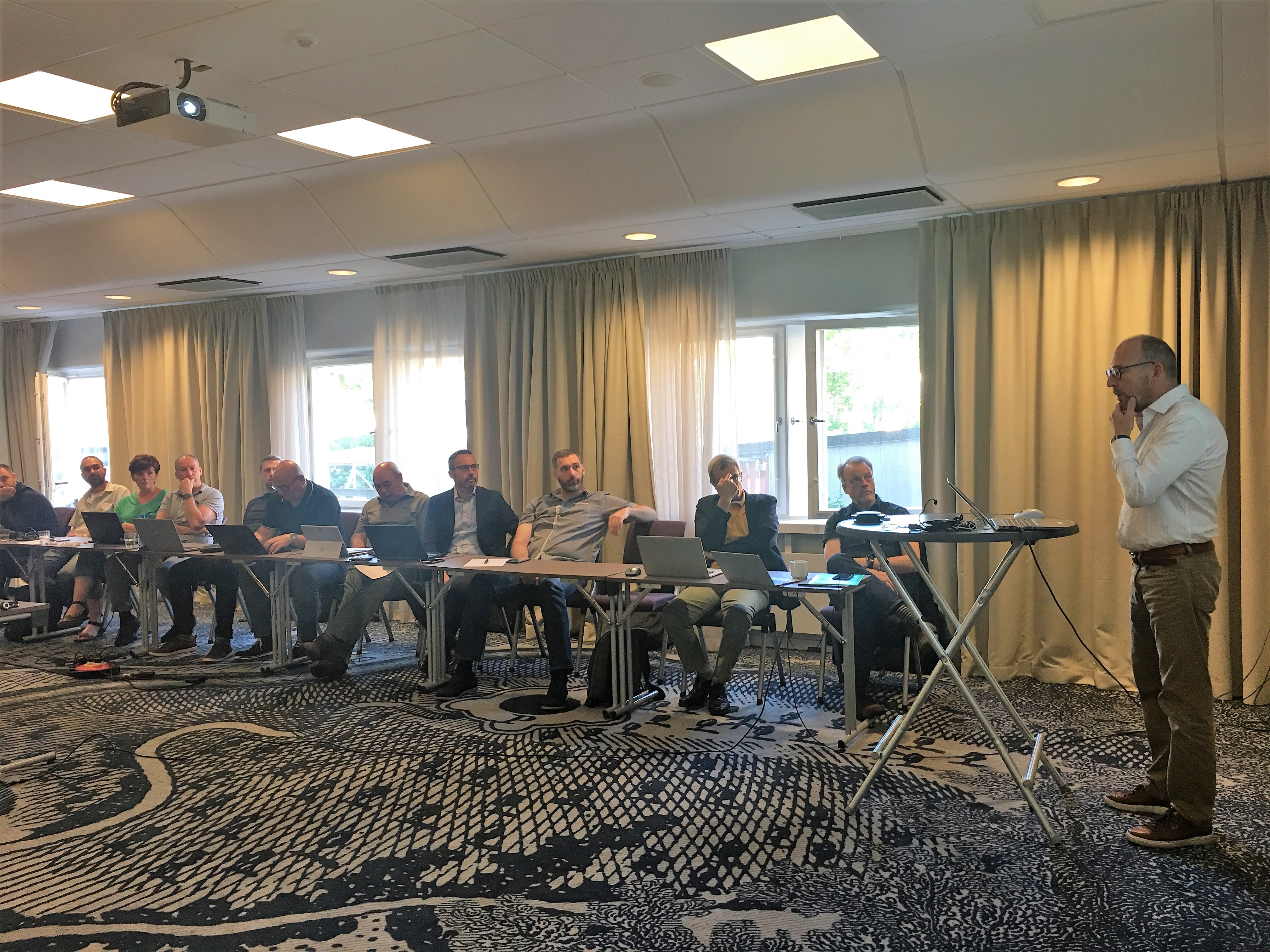
A plenary meeting, took place in Linköping, on July 17-19, 2019 hosted by partner "University of Linköping".
The goal of this meeting was twofold; to demonstrate the First Year Prototype and the training of LEAs.
Demostration of the First Year Prototype:
1. SPIRIT presentation layer, UI Front End: i) Based on URLs & Keywords, ii) Automated Jobs and Refined Searches. Demonstrated by NST and A E Solutions.
2. Loggon database & authorisation/authentication service. Demonstrated by NST and Innova Integra.
3. Graph Visualization. Demonstrated by NST.
4. Keyword based refined search service. Demonstrated by A E Solutions
5. Image analysis face extraction metadata generation Services. Demonstrated by Fraunhofer
6. Crawling and Analysis Services to support URL based and Keyword based Automated Jobs and Third Party Jobs. Demonstrated by Synthema.
Demo Content and Preparation Jobs:
1. Artificial Web Pages, generated by Lutech.
2. Artificial Tweets, generated by Synthema.
3. Artificial LEA usernames for Loggon, generated by by Innova Integra.
The training steps are listed bellow:
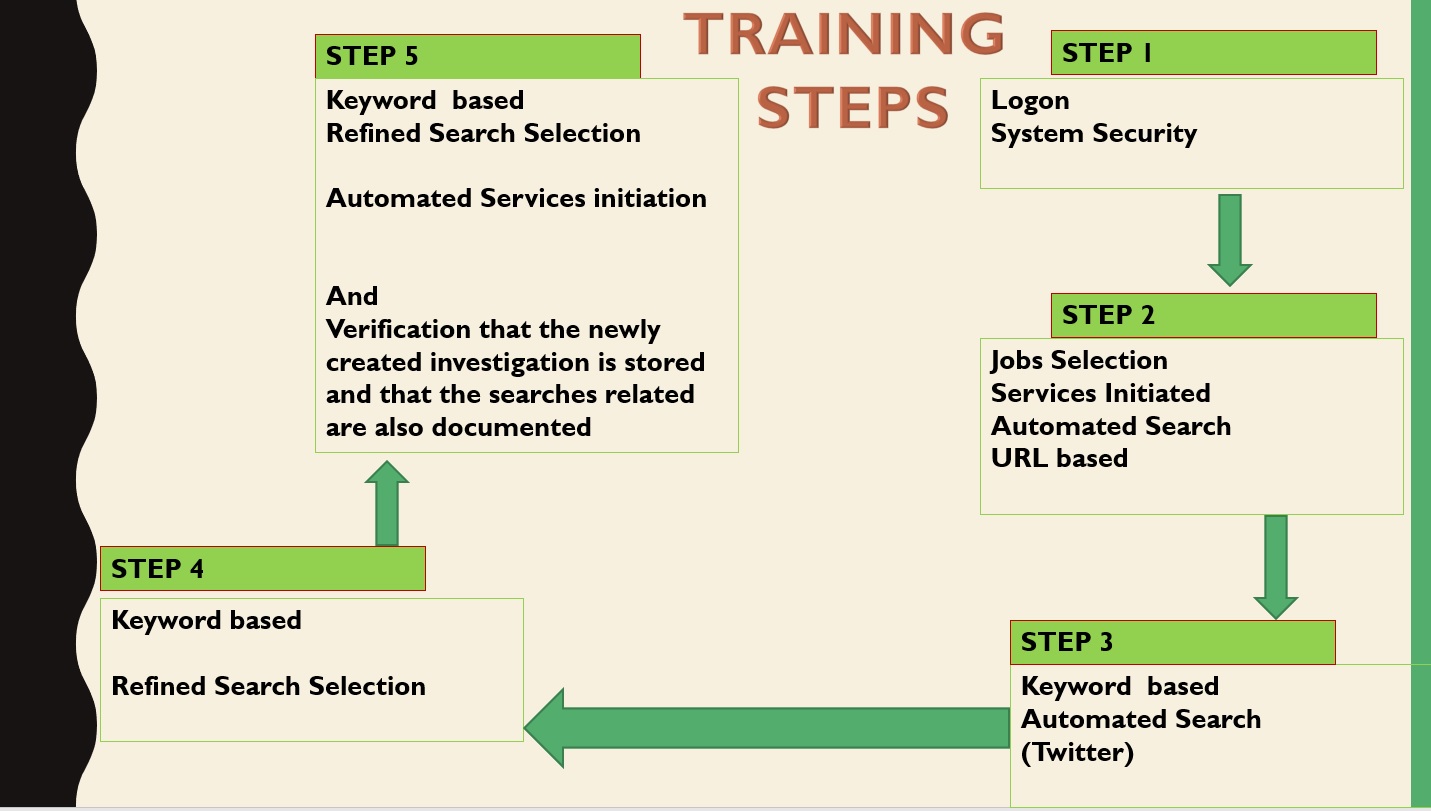
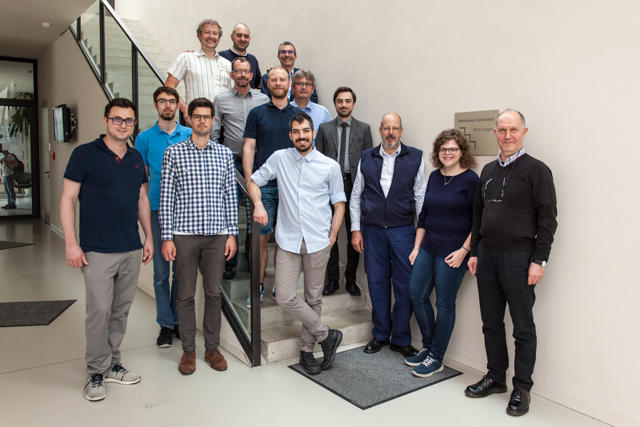
The technical meeting, took place in Ilmenau, on June 12-13, 2019 hosted by partner "Fraunhofer". This meeting was mainly a hackathon to meet MS2 targets.
The goal to have a 'system' ready for July to be demonstrated to our end users has been met.
Opposite this goal, the following were addressed:
A. Input (i.e. proto1 input: - 10 fake web pages interleaved with Policing data set). Discussed and agreed (Lutech, Singular Logic, Fraunhofer, AE Solutions)
B. Processing (i.e. refined search & analysis jobs, image/sound filtering on agreed data schemas) Demonstrated.
C. Output (i.e. a data graph with the universal use case defined functionality) Demonstrated.
All Hackathon topics (list below) addressed the Hacking tasks:
i) Overall system runtime and setup
ii) Set-up scheduler mockup or testing environment (sending batch tasks to services)
TOPICS:
1. Architecture & Systems (SYSTEM)
2. Service Integration (SERVICES)
3. Knowledge base development and Provision (KNOWLEDGE)
4. Demo preparation (DEMO)
5. Users management & Logging (AUTHENTICATE)
6. GUI development (Graph UI)
Seven (7) module development jobs have been configured with the following responsibilities:
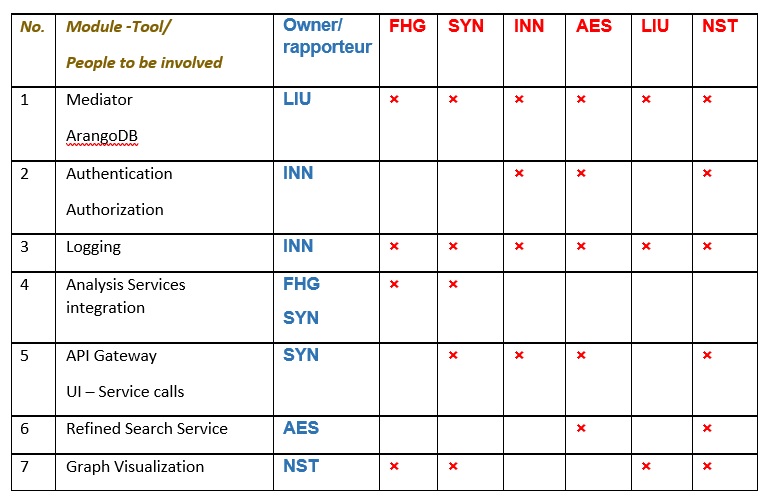
The Universal Use Case scenario has been validated and it will determine the following scenario steps.
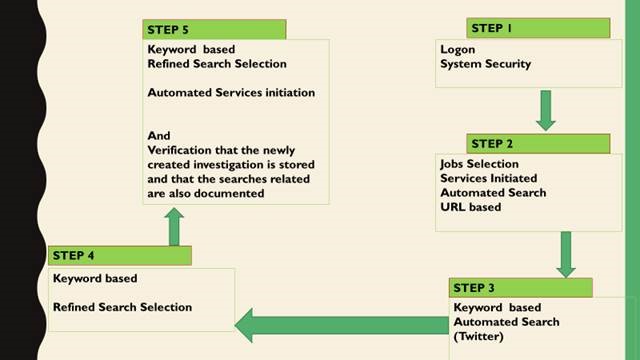
LEAs WORKSHOP: Refining SPIRIT incidental findings and risks policies
The SPIRIT project held the LEAs WORKSHOP: Refining SPIRIT Incidental findings and risks policies, on the 10th of June, at Wolfson College in Oxford. The workshop was organised by the ethical lead partner, the IDTUAB, and lead by one of the external advisors on the SPIRIT Incidental Findings, Prof. Nicholas Morris (PhD).
The aim of the workshop was to complete the incidental risk assessment- as included in D.9.2- for developing a comprehensive policy to address the incidental risks of SPIRIT.
The workshop gave SPIRIT researchers and external advisors the chance to better understand the potential issues of breaches of privacy, inappropriate or wrongful release of personal data and identity data, in police work, among other significant and challenging issues that need to be carefully addressed from a legal and ethical perspective. This was possible due to the great support and collaboration of the SPIRIT LEAs. Trough participatory methods that included several practical exercises, LEAs reflected and shared their expertise on incidental risks, risk minimizing strategies and structures in place in their organisations and room for improvement on how legal and ethical values, principles and requirements should be addressed by LEAs in their day-to-day processing of personal data.
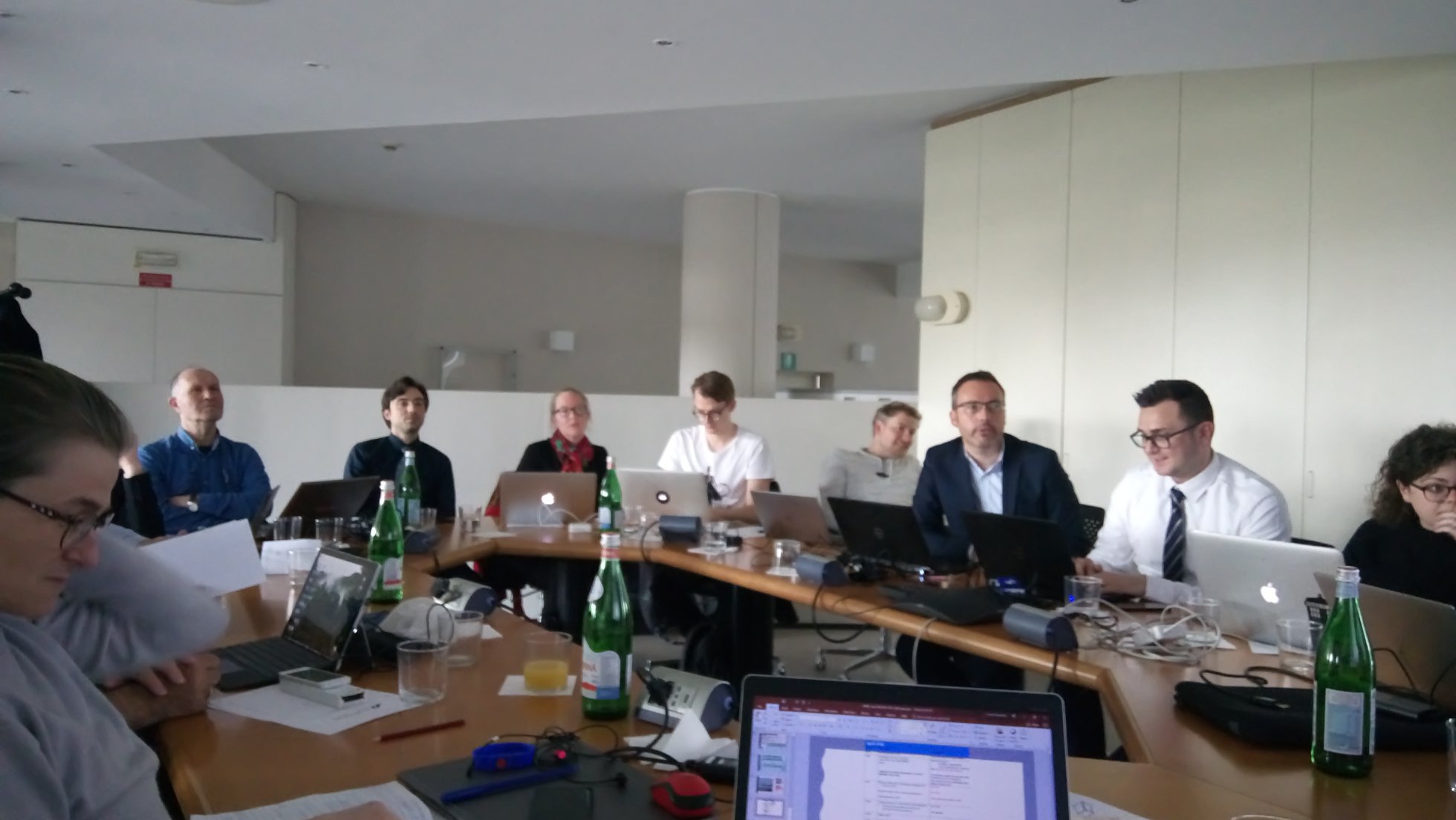
A technical meeting took place in Milano, on April 10-11, 2019 hosted by partner "Lutech SpA".
The main decision points were:
1. Prototype 1: Updated Specifications (Reported by each technical partner via a Progress Report Template Circulated by SLG.
2. A compromising approach regarding the dark web task will be described by LTEC and reviewed/agreed by UAB and the overall consortium.
3. Next Technical Meeting to be held on June 11th and 12th at Ilmenau FHG.
4. Prototype specifications can only be adjusted following gitlab ‘issues’ processes
5. The remaining sprints towards Prototype 1 preparedness are: SPRINT 2 (June 2019), SPRINT 3 (July 2019), SPRINT 3 (August 2019)
The SPIRIT project will take a novel approach in the development, testing, training and evaluation of a new scalable privacy preserving intelligence analysis for resolving identities system prototype.
Project Coordinator: Mr. Paolo Fabbri (LUTECH SPA.)
Project Technical Coordinator: Dr. Costas Davarakis (Singularlogic SA)
Project Support, Dissemination & Communication: NST AE
A Plenary Meeting took place in Linköping on July 17-19, 2019
Published on 20 July 2019
A Technical Meeting took place in Ilmenau on June 12-13, 2019
Published on 16 June 2019